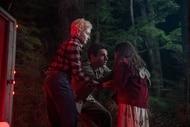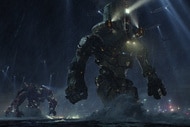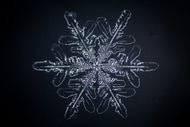Because black holes aren’t sci-fi enough, some of them might have superpowers

Superheroes may have to contend with cosmic phenomena sometimes, but actual objects in space can have powers of their own.
For all the enigma surrounding them, black holes can sometimes be boring. Mass and spin tell you everything you need to know about a black hole (since it has no charge), and once matter passes the event horizon, information is destroyed but only mass remains—but wait. That is the assumption of general relativity. Quantum theory insists that information can never be destroyed. To try and solve this contradiction, new research found that at low spins, black holes probably behave like they are supposed to according to general relativity, but at extremely high spins, they could do the impossible.
Black holes that spin at breakneck speed could possibly allow information to stay intact even after it falls into the abyss. That pretty much contradicts everything which comes to mind when you think of matter being crushed to filth once it falls into a black hole’s gaping maw. Mass is only mass and nothing more. This idea is also called the no-hair theorem. If the no-hair theorem is true, it means that the material properties, or “hair”, of any object eaten by a black hole are also devoured. What a group of theoretical physicists are now arguing is that not everything vanishes if the rules of quantum physics are applied. Meaning, black holes can have “hair” in the quantum realm.
“Our results demonstrate the existence of a broad class of theories that share the same stationary black hole solutions with general relativity at low spins, but which exhibit black hole hair at sufficiently high spins,” said Alexandru Dima, who led a study recently published in Physical Review Letters.
Because it is nearly impossible to observe what a black hole is up to and whether it extends or breaks general relativity, using its rotation makes it far easier to figure out. Theories that offer extensions to general relativity often allow for something called a massless scalar field. To be scalar means having magnitude, but no direction.
Scalar fields give a value of directionless magnitude to every point in space and be linked to how fast a black hole is spinning. Because a scalar field gives leeway for extra features that would not appear if you went strictly by general relativity, Dima and his team were able to shed light on what could potentially happen to matter falling into a more slowly rotating black hole versus a superfast one. If a neutron star collapsed into a black hole according to how general relativity sees it, all its neutrons and their interactions morph into the mass of the black hole once they venture past its event horizon. However, if you ditch the no-hair theorem when looking at this situation, it would allow for irregularities to remain even past the point of no return.
There are other reasons the no-hair theorem should be reconsidered. If the only things that characterize a black hole are its mass, rotation and (nonexistent) charge, then that also means it has no temperature. On one hand, space is freezing. On the other, something that spins ridiculously fast is going to generate heat. So which is it? Nobody knows. There is also the problem of no entropy being possible for a black hole as seen by general relativity. Hawking radiation contradicts this, since Stephen Hawking theorized that black holes will slowly evaporate until there are no more left in the universe.
Could a spaceship possibly pass through one of these black holes and end up in some eldritch corner of the universe when it emerges from the other side? Maybe, if you believe in white holes or another wild theory about traversable black holes. The research involving black hole spin relating to scalar fields hasn’t gone there yet. However, what it has done is seriously question whether mass is really just mass in a black hole.
Maybe black holes will eventually be seen as superheroes rather than supervillians.




























